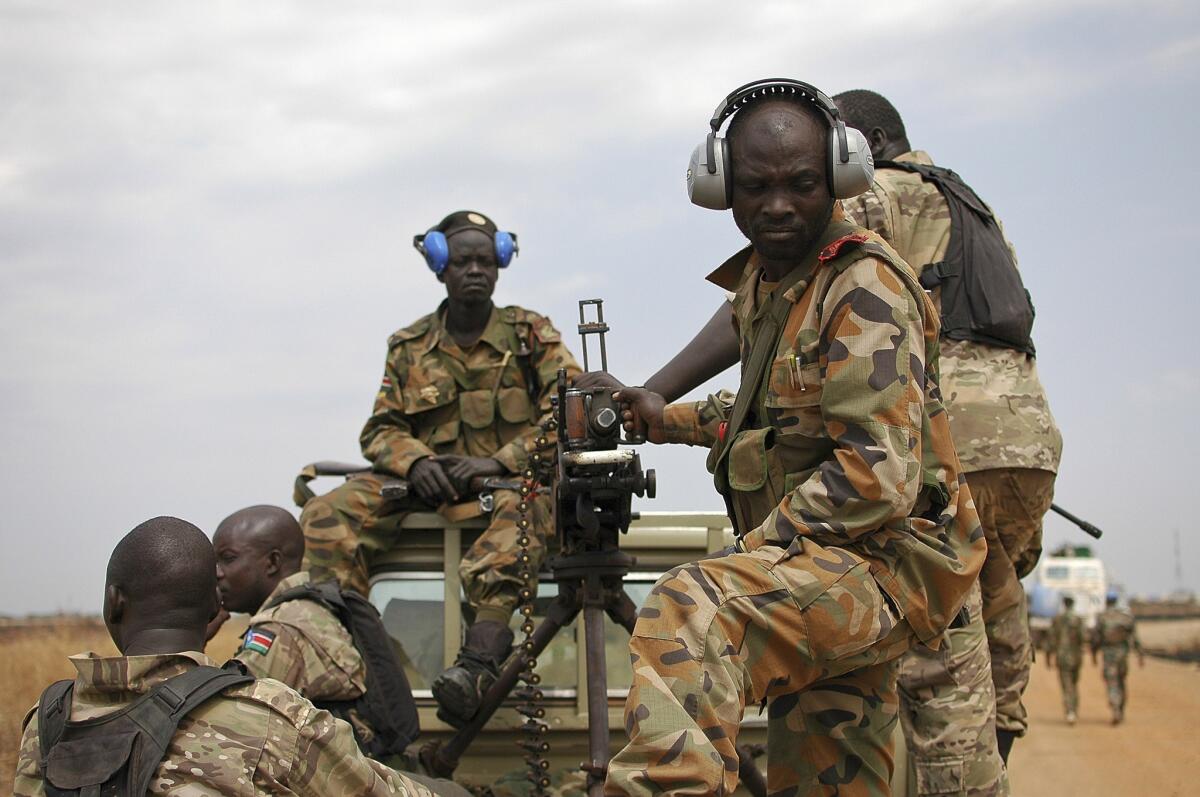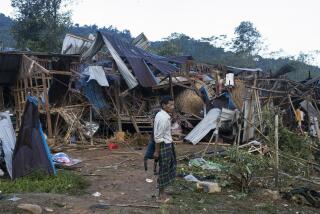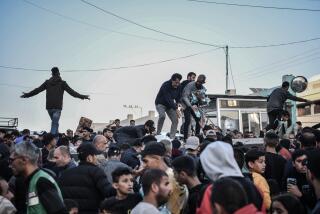South Sudan’s government, rebels sign cease-fire accord

JOHANNESBURG, South Africa -- South Sudan’s government and rebels signed an agreement Thursday to cease hostilities, the first breakthrough since combat erupted last month. The accord, signed in the capital of neighboring Ethiopia, called on both parties to stop fighting within 24 hours.
While still at the signing ceremony, government spokesman Nhial Deng Nhial cast doubt on whether rebel forces would stick to the accord. But Gen. Taban Deng Gai, spokesman for insurgents within the ruling Sudan Peoples Liberation Movement (SPLM), said they were committed to the pact.
The agreement calls on both sides to stop the fighting and end hostile propaganda, allow humanitarian groups access to the conflict zone and commit to protecting civilians.
The fighting grew out of a power struggle late last year within the ranks of the SPLM. In December, President Salva Kiir fired Vice President Riek Machar and the entire Cabinet, splitting the government and military and prompting accusations that he was increasingly authoritarian and determined to quash potential rivals.
Kiir accused Machar and his allies of plotting a coup, a claim the former vice president denied.
The clashes, which initially were fought by factions within the presidential guard, swiftly deteriorated into ethnic violence; Kiir is a member of the Dinka tribe, Machar of the Lou Nuer. As many as 10,000 people were killed, by one estimate. About 500,000 people have been displaced, according to the United Nations, with about 70,000 people seeking refuge at U.N. bases.
In one incident reported by Human Rights Watch, government soldiers last month opened fire at a police building where 200 to 300 Lou Nuer men were being held, killing almost all of the detainees. The government Wednesday accused rebel forces of dragging more than 127 patients from their beds in the town of Bor in Jonglei state before killing them.
The fighting eventually spread to half of South Sudan’s 10 states and cut oil production, on which the country depends for 98% of its revenue. Key towns changed hands repeatedly, though government forces managed to regain control of all major towns by last weekend with the help of Ugandan forces. Many observers saw that last flurry of fighting as an effort to gain ground before Thursday’s agreement, which froze forces in their existing positions.
Thursday’s cessation of hostilities agreement referred to Machar’s group as a “SPLM/A in opposition.” It said both sides were committed to a “genuine healing process.” A monitoring and verification system was put in place to ensure the fighting stops.
“The parties shall refrain from attacks on the civilian population and commit to the protection of human rights, life and property as provided by various national, continental and international instruments,” the agreement said. Both parties were called on to refrain from rape, torture, summary executions, recruitment of child soldiers or other hostile actions.
“With [the] cease-fire, we hope Dr. Riek Machar and his group lay down their weapons and come back to participating in the building of our new nation,” the government tweeted after the agreement was signed.
Thursday’s deal came after a hardening of government rhetoric against U.N. peacekeepers in which the world body was accused of trying to be a parallel government and siding with rebels.
The agreement reportedly dealt with the issue of 11 members of the SPLM rebel faction who were accused of launching a coup and arrested, but details were not immediately available. The fate of detainees had been a sticking point in early negotiations.
Twitter: @robyndixon
More to Read
Start your day right
Sign up for Essential California for news, features and recommendations from the L.A. Times and beyond in your inbox six days a week.
You may occasionally receive promotional content from the Los Angeles Times.






